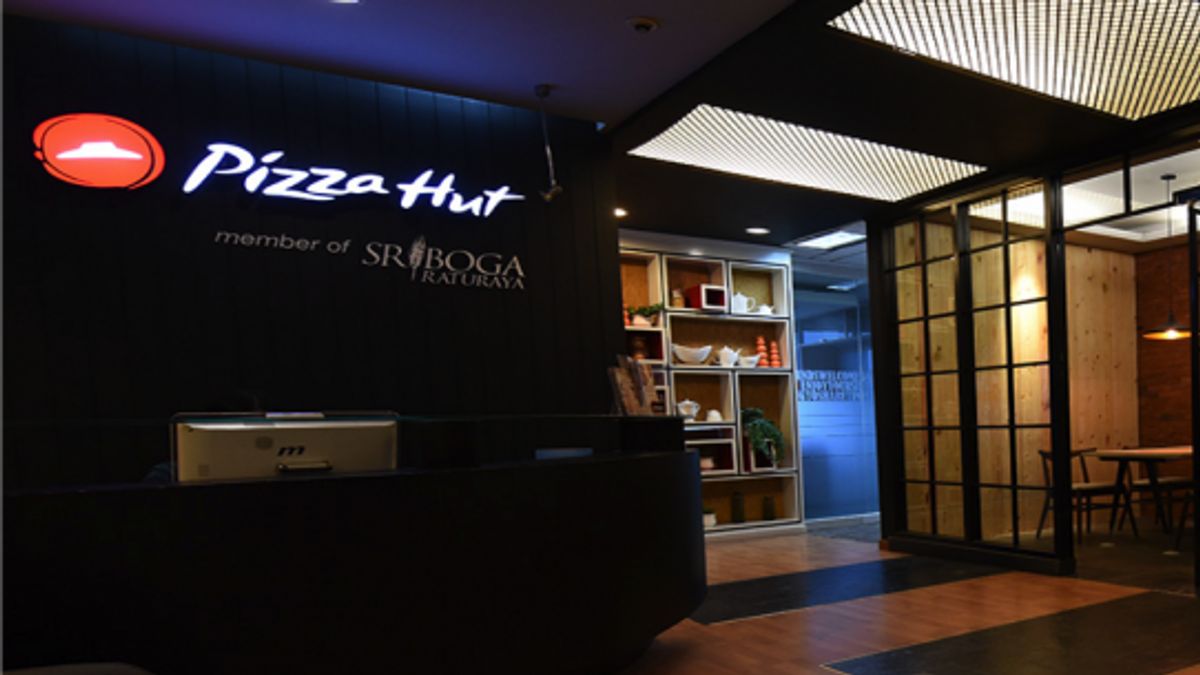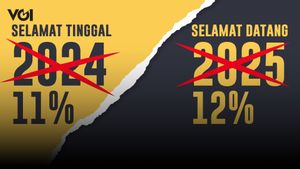JAKARTA - The COVID-19 pandemic has indeed made several companies frantic because their income has shrunk considerably. This is also experienced by the manager of the Pizza Hut franchise in Indonesia, PT Sarimelati Kencana Tbk.
The company coded as PZZA shares is known to be increasingly willing to sell on the side of the road when the pandemic hits.
Several months ago on social media Twitter, a video was uploaded showing a Pizza Hut employee waiting for a customer on the side of the road. The post was retweeted by around 6,300 accounts, and replied to 1,200 times.
I swear it's really sad ... in the class of pizza hut selling on the side of the road like this using a car😭😭stay strong everyone..location: balkot malang cc @infomalang pic.twitter.com/PapiY7oxxg
- mamang (@bubursiapsaji) May 21, 2020
Many responded with empathy and hoped that Pizza Hut would continue to operate even though they had to sell to the side of the road. However, it is known, since before the COVID-19 pandemic hit, Pizza Hut often peddled its wares outside the shop, for example, such as in Car Free Day (CFD) activities in several areas.
This is a way for companies to expand their market and at the same time keep their kitchen hot. And during the COVID-19 pandemic where there was a Large-Scale Social Restriction (PSBB) policy that required Pizza Hut to close its outlets, companies are increasingly looking for spots to peddle their products on the sides of the road.
And it turns out, the company is taking this roadside selling seriously into a business opportunity in the future. Quoted from Sarimelati Kencana's disclosure of information on the Indonesia Stock Exchange (IDX) page uploaded on Wednesday, October 14, the company's management announced this.
There it is stated that in order to improve performance as a company engaged in the restaurant, catering, warehousing, distribution and food manufacturing industry, Sarimelati Kencana sees a business opportunity in the mobile food supply business.
This business activity is currently not one of the company's business fields. Based on careful calculations of business opportunities and services that can be carried out in a sustainable manner, the company believes that it will be able to take advantage of existing opportunities to provide added value to shareholders.
Therefore, the company plans to increase its business activities in the form of restaurants and other mobile food provision using food truck facilities.
To obtain shareholder approval regarding the plan to change business activities, the company will also hold an Extraordinary General Meeting of Shareholders (EGMS) in Jakarta, on Thursday 19 November.
The required investment cost for this expansion is IDR 750 million. Fulfillment of the funding for the mobile food supply business plan will come from own capital.
The sales operation through this food truck is scheduled to start in early 2021 with 365/366 operational days. The installed capacity is the target volume of pizza sales that can be sold in 1 day, which is 200 pcs / day or 73,000 to 73,200 pcs / year.
Sales utilization is assumed to be 60 percent in the first operating year (2021), 75 percent in the second operating year (2022), and 90 percent in the next operating year (2023 and beyond).
Meanwhile, the price of pizza after tax is assumed to be IDR 25,000 / pcs. Then, the price is assumed to have increased by 3.23 percent to 4 percent per year.
Based on the projected financial ratios for restaurants and mobile food supply, Sarimelati Kencana is targeting the average net profit margin to increase by 8.92 percent in the next seven years.
Performance Dropped in Semester ISarimelati Kencana only made a net profit of Rp.10.47 billion in the first semester of 2020, or a decrease of almost 90 percent compared to the same period in 2019. Sarimelati Kencana's income reached Rp1.82 trillion in the first semester of 2020, or decreased by 6.06 percent on an annual basis.
Selling in the Jakarta area is still a cash machine for Sarimelati Kencana, even though large-scale social restrictions (PSBB) are applied in that area. Sales in Jakarta reached 40.24 percent of the company's total sales.
Meanwhile, other regions that also contributed are Java and Bali. The contribution of the two regions reached 30.81 percent.
However, the increase in cost of goods sold and operating expenses was not offset by increases in other operating income. This in turn caused the company's net profit to drop considerably.
The English, Chinese, Japanese, Arabic, and French versions are automatically generated by the AI. So there may still be inaccuracies in translating, please always see Indonesian as our main language. (system supported by DigitalSiber.id)













